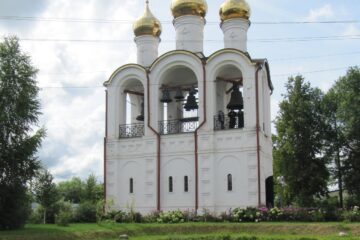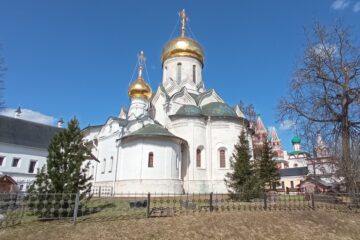We continue our discussion of the New Testament and this month we dedicate to Letter to the Ephesians. The most crucial problem in the study of Paul’s Epistle to the Ephesians is whether Paul wrote it. It claims unambiguously to come from Paul’s hand, both in the very first word of the letter and in numerous other personal references. Doubts among scholars as to the literal truth of these claims have arisen due to a number of factors, however. Some of these include the author’s obviously limited acquaintance with his readers, something highly puzzling if Paul is writing to his friends in Ephesus, where he spent nearly three years. Likewise, the literary relationship between this letter and that to the Colossians shows that if they were not written at the same time by the same person, then one was modeled the other. Yet the vocabulary and style of Ephesians are considerably different from that in Colossians, suggesting that the two documents were not authored by one person. Furthermore, the teaching of Ephesians is thought to reflect situations in the early church which postdate the death of Paul by several decades in some cases (e.g., the references to “apostles and prophets” in 2:20; 3:5). All these factors add up to the possibility that Paul himself is not the author of Ephesians. Nevertheless, taken one by one, the separate pieces of evidence can be adequately explained on the assumption of Pauline authorship. It is their cumulative effect which carries the greatest weight against authenticity. Yet even the accumulation of evidence is not a watertight case, but only a case for probability, and history is replete with the improbable. Without being either dogmatic or credulous, we may still with good conscience approach Ephesians as a letter from the apostle Paul.
In our study of Old Testament, we focus on the Book of Prophet Amos. This exemplary composition, dealing with the ethical and moral implications of the Israelite covenantal religion, has been attributed consistently through the ages to Amos of Tekoa. His name, which may mean “burden-bearer” or “burdensome,” is distinctive in that it does not occur anywhere else in the Old Testament. The name is mentioned once in the New Testament (Luke 3:25), but an entirely different person is involved. Jewish tradition suggested that the name was a shortened form of Amaziah (see Amos 7:10, where the two are contrasted), or Amasiah, which itself occurs only once in the Old Testament (2 Chron. 17:16). The prophet Amos was born in Tekoa, a village located on a hill some twenty-eight hundred feet above sea level, overlooking the wilderness of Judah. It was somewhat isolated from Jerusalem, the capital of the southern kingdom, being situated six miles south of Bethlehem. The ancient name has survived in the modern Arabic Tequ, an area that is well suited to the rearing of sheep and goats. From this elevation the prophet could contemplate the significance of God’s message for the nation as he looked beyond the nearby caravan trails to the desolate Judean wilderness. The wasteland would obviously serve as a reminder of his nation’s future if covenantal law was continuously disobeyed. Although Amos disclaimed any connection with prophetic guilds and was not a priest (as were Jeremiah and Ezekiel) or an aristocrat (as was Isaiah), he should not thereby be dismissed as an ignorant peasant just because he made a living from shepherding animals and from seasonal work in the fig groves. His prophecies show him to have been a thoughtful, spiritually minded person who was alarmed at the fate in store for the nation if its light did not reflect the justice and righteousness that were basic to covenantal law. Like many other Hebrews, Amos exhibited poetic gifts, and his oracles are models of articulate speech, beautifully crafted literary idioms, and a passionate concern for the nation to turn away from idolatry and worship the Lord of Sinai as Israel’s one and only true God.
We have several projects under development that might be interesting to you. Come and download numerous Christian books, listen to our programs, see several video lessons based on Russian Christian art, take a look at pictures of beautiful Alaska. Do you have critical remarks or brilliant ideas about improving our broadcasting? Send us your suggestions and we will do our best to make the programs better.
Categories: RUSSIAN


